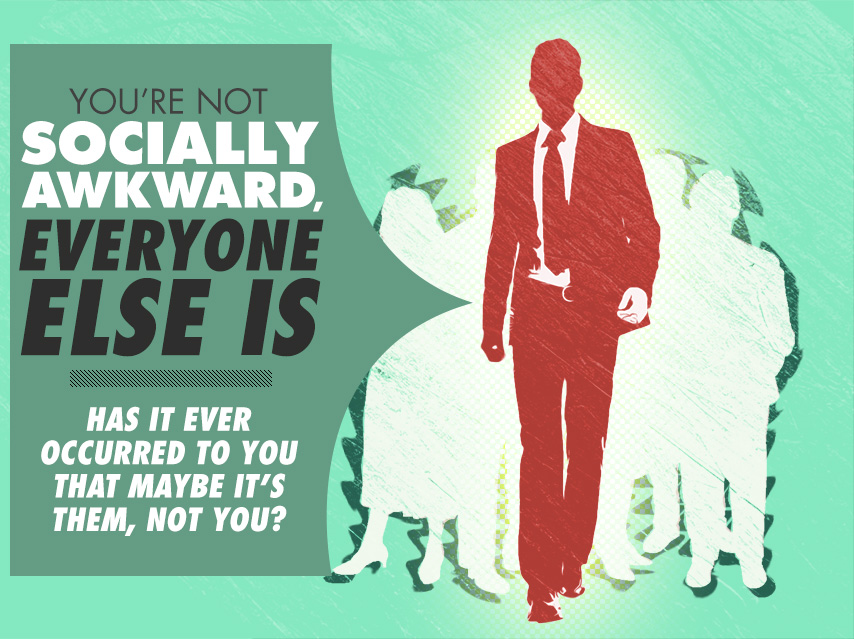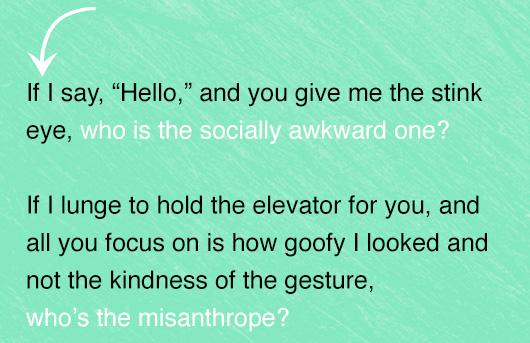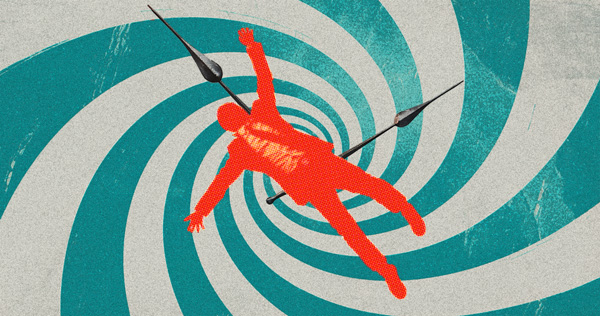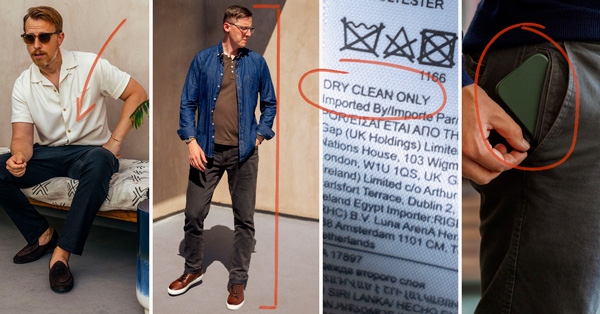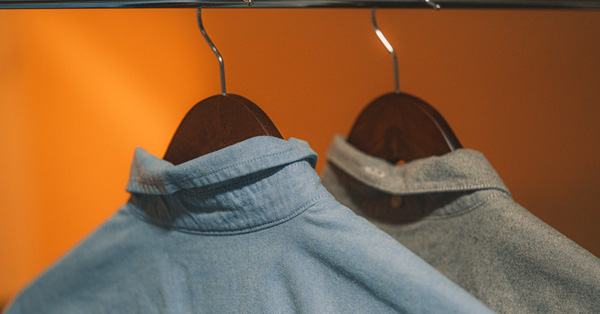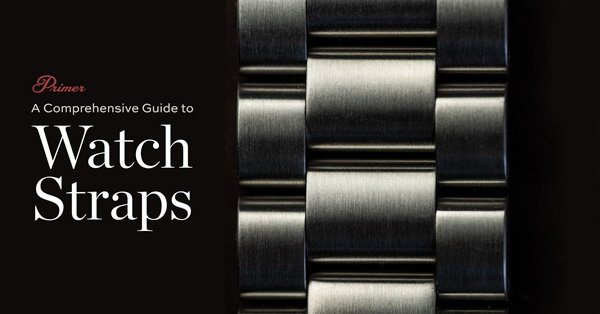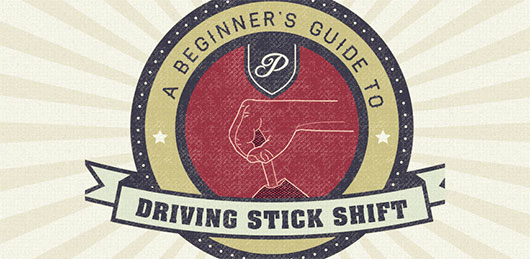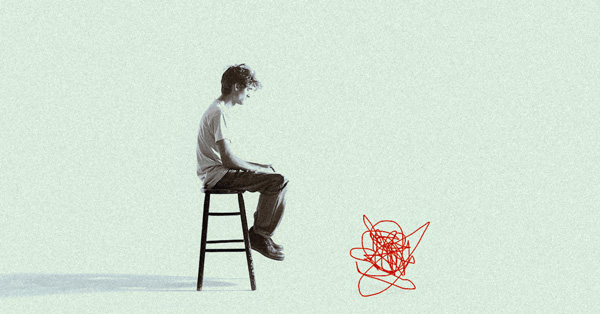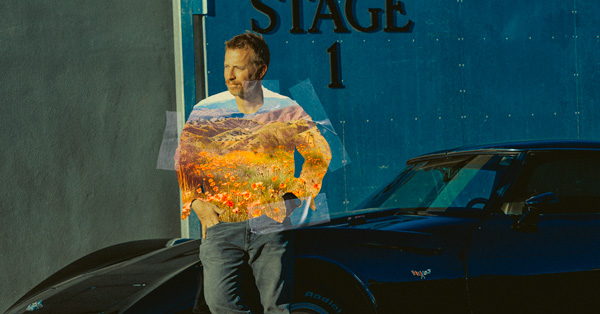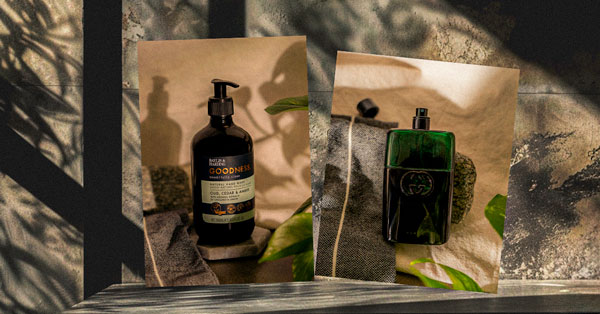A few weeks ago, I was talking with Primer Founder/Editor Andrew Snavely about social awkwardness. We were talking a bit about our experiences out there in the world, approaching people we don’t know very well. With me, there have been dozens of times where I have tried to be friendly with someone in the elevator or at a bus stop and things went horribly wrong. Each time, I came away from the situation feeling like an idiot.
Some people don’t have this problem. They can talk to a stranger without breaking a sweat. Chitchat about the weather, make a joke, and walk away thinking nothing of it. For me, whenever I talk to someone, it’s like I accidentally stepped on the back of her shoe. It’s clumsy, painful, and I can’t help feeling like the other person is annoyed with me.
It’s gotten to the point where I’ve noticed myself exhibiting some avoidance behaviors. I let opportunities slip past because I know they’d involve putting myself out there, risking social awkwardness and embarrassment. I have this fear because, 7 out of 10 times, for seemingly no reason, I end up feeling stupid afterwards. It’s like a lottery of shame and embarrassment, and the odds are terrible.
Social Awkwardness: It’s Not You, It’s Them
This is social anxiety. Perhaps only a moderate case—it doesn’t completely stop me from living my life. But it does leave a lot on the table. And this has been my life for as long as I can remember. So, when Andrew told me he had a tip for these kinds of situations, I was eager to listen.
He told me:
“You’re not socially awkward, everyone else is.”
Wait, what?
I’m not socially awkward? Really?
Clearly, Andrew had never overheard me on the telephone before.
Here’s a real conversation from recent history:
“Hi, Dawn, this is Jack, how are you?”
“I’m fine, Jack, how are you?”
“Good, how are you?”
“…didn’t you already ask that?”
“Yes. Uh, never mind. Anyway, how are you?”
Case in point: I am one awkward creature.
Still, I let Andrew elaborate. He assured me that this philosophy of “it’s not you, it’s them” really worked. Or, at least, it was working for him.
He explained that before, whenever things were socially awkward, he would assume that it was something about him personally that caused the person to react that way. “But that kind of thinking completely ignores what that person might be going through in that moment. Maybe they’re having a shitty day at work. Maybe a relative just died. Maybe they just had a fight with a significant other,” Andrew explained.
The premise of the philosophy was pretty simple. But I could see why it made sense. There’ve been plenty of times when I’ve forgiven myself for being short with strangers or rude to friends or family because of some other big event going on in my life. Of course the same might be true for other people.
“But more obviously, have you ever considered that the person you are talking to might be just as socially awkward as you?” he asked. “Maybe they are even more socially awkward than you.”
That’s an excellent point. I often give people the vast benefit of the doubt about how they are feeling in a conversation. I act and think as if the other person is completely lucid, collected and purposeful in their responses. Like I’m a contestant on American Idol, pouring my pitchy heart out, and they are detached and judgmental celebrities with absolutely no skin in the game.
That’s sort of a crazy way to think. Social encounters are joint ventures, whether both parties signed up or not. And it’s equally incumbent on the other person to make me feel comfortable as it is for me to make them feel comfortable.
If I say, “Hello,” and you give me the stink eye, who is the socially awkward one? If I lunge to hold the elevator for you, and all you focus on is how goofy I looked and not the kindness of the gesture, who’s the misanthrope? If I make an honest effort to be friendly and approachable, and you do not, why should I feel bad?
Putting things in that perspective has prompted me to reevaluate some of my most cringe-worthy moments. Like Dawn on the phone—what if she was also slapping her forehead when she hung up the phone, wondering why she didn’t let me off the hook for my silly gaffe at 7AM in the morning before I’d had my first cup of coffee? What if every single one of her conversations that morning was equally as awkward, and she felt like she had annoyed and underwhelmed me? What if there was something that she said on the phone that she was beating herself up about that I didn’t even notice?
Owning Awkward Situations
“You’re not the socially awkward one, they are.” That’s the life-changing mantra. Since talking to Andrew, I think about it a lot. And I must say, it’s had a positive impact.
For example, I now handle potential “awkward silences” much differently. Before, I used to have this phobia of car rides with just one other person. I would chatter to fill the void, simply because I believed it was unfriendly not to. But now, if the other person isn’t making a move to make idle chitchat, then I don’t either. Which is fine by me. I prefer to ride in silence, gazing at the highway and listening to music, rather than blandly commenting on every billboard.
I also feel more comfortable with awkward silences on the phone. I used to feel responsible for every gap in the conversation, but now, I’ve learned to recognize when the ball is in their court. I used this recently in a job interview. They asked a question, I gave a complete answer, and then there was silence. The old me would’ve kept talking, even though I was out of things to say. But this time, I recognized that it was the interviewer’s move. I waited. I felt confident in my answer. And if the interviewer felt awkward because he didn’t’ know what to say next, I was fine with that.
Thinking like this has made a big difference in Andrew’s life, too. He says that now, when he gets a reaction that is less than optimal, his first thought is no longer “What’s wrong with me?” Instead, he wonders, “I wonder what’s up with them today?” Since implementing this in his life, he says that his social anxiety has almost all but evaporated. He’s a thousand times more confident before, during and after social encounters.
It’s especially changed his confidence level when talking to women. “I never considered, you know, that being a woman must be really awkward, with guys always trying to talk to you. Even if they think you’re cute or whatever, it’s still uncomfortable to receive compliments or interact with someone you think is in to you, or who you’re into.”
Curing Social Anxiety: A Preemptive Strike on the Fear of Being Judged
After hearing this, I became more interested in Andrew’s line of thought, particularly because it was working so well for him. Not much changed about Andrew’s behavior, as far as I can tell. The biggest thing that changed was his mentality. But that conscious effort to take the focus off of himself and place it more on the other person has made all the difference. By simply thinking, “I’m not the awkward one, it’s them,” he has decimated his social awkwardness and anxiety. I wondered why and how this works.
I dug into the little self-imposed Jedi mind trick and I think I came up with a reason for why it works. You don’t have to understand these reasons for it to work for you. You can start using this mental trick now and start feeling more confident and less socially awkward. But if you want to know what I think it all hinges on, read on.
Uncertainty and Social Judgment
There are many contributing factors to social anxiety. But practically all of them boil down to one all-encompassing fear: the fear of being judged. Talking to people is a bit like putting on a performance. And just like walking out onto a stage in front of an audience, there are two possible outcomes that loom in our minds: wild applause or boos and hisses.
In some ways, social encounters are even more daunting and uncertain than stage performance. After you are done doing your thing on stage, there is an established means for receiving feedback (e.g. the applause or lack thereof). But when we talk to people, we never quite know how well we did. After a social encounter, you can’t hand the person a survey card asking them to rate your performance from 1 to 10. Instead, we have to try to glean how they felt about us based on their verbal responses and body language. We have to try to guess what the other person is thinking about us in order to know how good or bad of an impression we made. And the problem with that is that most of us are pretty crummy mind readers. It’s not like with your close friends, where over the years you’ve learned how to parse each pregnant pause and have decoded what each of their facial expressions really means. Instead, you are trying to read the mind of a complete stranger, who may or may not even be themselves at the moment.
So, there are two things going on. First, there is the fear of judgment. We all fear embarrassment, especially in front of a person we might be trying to impress or begin a friendship with. That’s why when we put ourselves out there, we so desperately seek the cues that we’ve made a connection. But the second problem is the inherent uncertainty in social encounters. Those positive or negative cues are hard to recognize and notoriously easy to misinterpret. To make matters worse, a preexisting lack of confidence and the ghosts of past traumatic social experiences often predispose us to a negative read. That is, we may assume we’ve blown it when we really haven’t.
Being Your Own Judge
This is where Andrew’s new philosophy on social awkwardness really helps. “It’s not you, it’s them,” takes you off center stage and allows you to be your own judge. This is important. Being your own judge means that you don’t have to waste all that energy trying to read the tea leaves of another person’s perceived reactions. It means you don’t have to try to adjust your approach or demeanor mid-conversation to try to cater to the unknown. Instead, it lets you decide what is normal and sociable behavior beforehand, rather than trying to score yourself based on your inscrutable audience.
When you tell yourself, “I am not the socially awkward one,” it means you are confident that your decision to say “Hi” to someone and to be open and friendly was the right and normal thing to do. You make this decision before knowing how the other person will react—whether they smile and strike up a conversation or scowl and tell you to piss off. Because regardless of how they react, the right thing to do—based on your own judgment—is the right thing to do.
Think of it this way: When you are driving, you can break the law, and maybe you won’t get in an accident. But on the same token, you can follow the laws perfectly and someone can still come into your lane and slam into you head on. Being a safe, defensive driver can protect you up to a point, but eventually, it’s all up to chance and the behavior of others. Still, it’s important to be a lawful driver, because when there is an accident and the cops show up, they are going to want to know who is at fault. If you were being a good driver like you always are, then no one is going to blame you. Your car may be wrecked and your nose may be broken, but at least you know you were doing the right thing.
In the same way, being genuine and operating based on what you believe to be socially normal is always the best thing you can do. Just like you can’t control other cars on the road, you can’t control the social behaviors or reactions of other people. The key is that when things do go badly—and they will, as a matter of probability—you want to be the one who was acting confidently based on what you believe was right. So, when there is a car wreck of a social encounter, and you are trying to figure out who was at fault, you can say to yourself: “Well, I was being friendly and genuine. So, I know it wasn’t me who made that situation awkward.”
Conclusion
Remember this the next time you are performing a post-mortem of a failed social encounter. Judge yourself based on how you act, rather than how others react.
This is one of the keys to Andrew’s philosophy. Before, he used to obsess over the details, trying to figure out what he had unknowingly done wrong. But now he says: “I just focus on being the best I can be.”
You should do the same thing.
Decide beforehand what a friendly, genuine person would do and do that. If the reaction you get is less than optimal, you don’t have to spend time thinking about what you did wrong. You may never know what went wrong in the exchange, but it doesn’t matter. Remember that being friendly doesn’t guarantee a good outcome, especially if you catch someone in the wrong mood. But it does guarantee that you don’t have to second guess yourself.
Removing this uncertainty and fear of judgment has an amazing effect on your confidence level. Social anxiety consumes a vast amount of our mental and emotional processing power, and if we let it run rampant, it becomes the reason we are socially awkward. If you’ve ever blanked when someone asked you a simple question like “Where do you live?” or “What’s your favorite band?”, then it’s probably because too many of your mental resources were committed to worry and calculation. Those resources should have instead been applied toward simple recall of the facts and communication of your actual feelings. When you stop getting hung up on the basics, that’s when you start to feel comfortable. That’s when your true personality starts to come out. And that’s when people start making a connection with you.
Bottom-line: Don’t be outcome-based in how you approach people or judge yourself. Be intent-based. Ask yourself: Was I being genuine? Was I being friendly? If you answer yes to both of those, don’t sweat a negative reaction. It’s on the other person to return in kind, and if they don’t, then it’s not your fault. Don’t change your behavior based on that negative experience. Although you may have had bad luck that time, chances are, if you continue to be genuine and friendly, then you’ll eventually get a normal reaction from someone. After all, every failure increases your odds for success.



